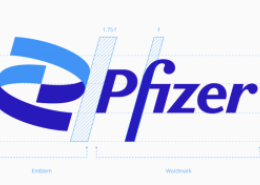CONSORTIUM ESTABLISHED TO SUPPORT ICH M7 COMPLIANCE
• Webinar to showcase data collaboration project
An industry workgroup comprising toxicologists, pharmaceutical companies and data experts plans to unveil the early results of a data sharing project designed to enhance the safety of drug substances and aid compliance with quality guidelines such as ICH M7.
Led by Lhasa Limited, an educational charity which creates state-of-the-art in silico prediction and database systems, the Acceptable Intake (AI) and Permitted Daily Exposure (PDE) project has brought together a team of individuals to share and harmonise AI and PDE data for commonly used reagents and solvents.
The calculation of compound specific AIs/PDEs is required in regulatory submission under various guidelines, including ICH M7 and ICH quality guidelines A, B and C (Q3A/B/C). This calculation and presentation process is often time consuming and costly, with the potential for duplicate or non-equivalent assessments across submissions from around the world.
The AI/PDE project was initiated in 2017 using Lhasa’s Vitic Nexus platform, a chemical database and information management system. Recently nine pharmaceutical companies including AstraZeneca, Boehringer Ingelheim, GSK, Novartis and Sanofi Aventis have shared AI/PDE data and, the group is now looking to expand to include new members from the pharmaceutical community.
On Wednesday, 6th September, Dr. William Drewe, Business Development Manager at Lhasa, and David Wilkinson, Senior Scientist at Lhasa, will lead two webinars on AI/PDE data and will showcase how the data collaboration project has helped to streamline the risk assessment workflow for some of the biggest pharmaceutical companies in the world and has the potential to save significant time, effort, and money without disclosing sensitive information.
Those interested in registering to attend the webinar to find out more about the consortium should register here.
“One benefit of the AI/PDE project is that participants may gain access to a set of acceptable exposure limits for chemicals common to the synthesis of pharmaceuticals,” said Krista Dobo, senior director of Drug Safety R&D at Pfizer. “In addition to the knowledge gained, the presentation of consistent limits to regulatory authorities across pharmaceutical companies has the potential to minimize the likelihood that a proposed limit would be rejected.”
ENDS
For further press information contact Sarah Giangregorio, Eloise Garrett or Liam Southwell at The Right Agency 0800 910 1898
Notes to Editors:
Lhasa Limited was founded in 1983 as a not-for-profit organisation and educational charity to promote the use of computer-aided reasoning in chemistry and the life sciences. It facilitates collaborative data sharing projects with its members in the pharmaceutical and other life science industries.
Lhasa is a pioneer in the production of expert, knowledge-based systems for forward thinking scientists, and continues to draw on its 30 plus years of experience in knowledge development to create user-friendly, state of the art in silico prediction and database systems for use in metabolism, toxicology and related areas of science.








